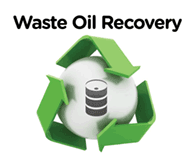The two-day event, run by Plant Health Australia (PHA), brought together around ninety participants from industry, governments, research funders and scientists from across Australia, including Gisele Irvine, who was supported by the GIA Secretariat from New Zealand to attend the forum and represent the organisation’s partners.
The forum featured presentations from a number of high profile figures in plant biosecurity, providing expert views on the current RD&E requirements of Australia’s plant biosecurity system. A strong theme from the forum was ‘What does industry want, and how we can collectively meet industry expectations?’
Participants were invited to share their perspectives on biosecurity problems and solutions during a workshop session research priorities could be aligned with the areas of greatest need.
Expert views were presented on the current biosecurity system RD&E requirements including:
- The Commonwealth identified it needs to be a reasonable regulator and be less visible, and for Australia to find better ways of implementing things through effective RD&E in a risk return allocation model;
- The risk posed by the bacterium Xylella fastidiosa, and the significant benefits of preventing exotic pest incursions wherever possible;
- The biosecurity needs of global markets and how domestic treatments aligned with international standards would help exporters;
- Advancing the vast opportunities in Asia particularly in India, that could potentially allow exports of produce to increase ten-fold;
- An improved capability in diagnostic and surveillance expertise in Australia;
- Specific areas of activity to improve research outcomes including: establishing diagnostic expert groups for key pests; real time surveillance for high priority pests; and development of preparedness plans for Xylella, and other high priority pests that can affect multiple crops.
Irvine reported that a key learning from the forum was that biosecurity research must have a cross-sectoral approach to maximise the benefits of scientific research for Australia’s crop producers, particularly projects on pests that attack multiple crops. It also identified the ongoing importance of PHA in the role of identifying and coordinating industry biosecurity RD&E needs and delivery of outcomes aligned to Government initiatives.
In addition to contributing ideas to the future of plant biosecurity research, the forum provided an opportunity to enhance networks and foster partnerships with others who want to advance plant biosecurity science.
Commenting on the forum, Gisele Irvine said she was fortunate to have had the opportunity to attend and participate in the event. “Much can be gained from the close and ongoing relationship with PHA and the continuation of collaborative biosecurity RD&E projects between New Zealand and Australia. The forum assisted in broadening New Zealand’s understanding of where Australia would like to be in the future with the provision of excellent plant health RD&E and how it was going to achieve that aspiration.”
Looking ahead, GIA partners said that they will review how the lessons we can learn from the work of its Australian peers can be integrated into the future GIA programme.
Source: GIA



 Classifieds
Classifieds



